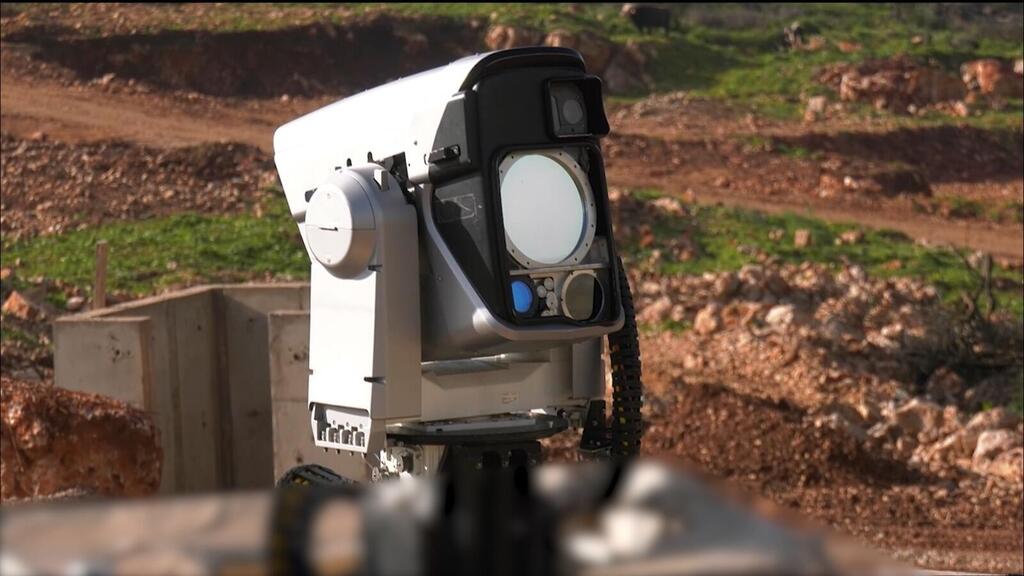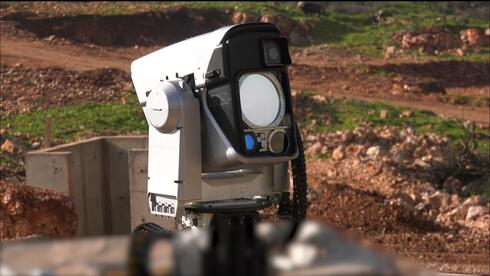
Israel’s laser defense revolution: Iron Beam nears operational use
A new era in defense technology is underway as Israel deploys battlefield lasers.
The energy weapon soon to enter operational use in the IDF, the Iron Beam (Magen Or) air defense system, marks the beginning of a technological revolution poised to reshape the battlefield in the coming years. In its initial phase, the laser’s effective interception range will be around 10 kilometers, allowing it to counter rockets, mortar shells, and drones that are currently intercepted only with expensive missile systems.
At the same time, Israeli defense companies are racing to expand the range and capabilities of laser weapons. Elbit Systems is developing airborne laser systems that can be mounted on aircraft or drones flying above cloud layers, enabling rapid, low-cost neutralization of ballistic and even hypersonic missiles, those capable of flying at speeds at least five times the speed of sound.
Last week, Elbit completed a $500 million offering on Wall Street to expand its operations in the European market, which continues to see high demand for weapons systems amid the ongoing war between Russia and Ukraine. The funding will also accelerate development of its airborne laser systems. A glimpse of this vision was previously shared by Elbit President and CEO Bezalel (Butzi) Machlis in an interview with Calcalist, where he spoke about future energy-based weapons platforms, including those operating from space.
The shift laser-based weapons are expected to bring to warfare is considered historic. For decades, the dominant weapons, missiles, tanks, planes, and artillery, have evolved through incremental upgrades. In contrast, the high-powered laser represents an entirely new class of weapon, one that could eventually play a central role in modern combat. Through its laser defense program, Israel has positioned itself as a global leader in the field, achieving technological milestones that even world powers have struggled to match.
Israel's continued leadership in laser defense will provide it with a strong competitive edge in the global arms market. However, despite the technological achievement, undeniably significant, Israeli defense companies cannot afford complacency. Nations like China and Iran are investing heavily in developing similar capabilities and may soon challenge Israel's advantage. As a result, Israeli companies developing laser systems may also need to prepare countermeasures to defeat enemy lasers.
Related articles:
Still, it is important for Israel’s defense establishment to manage public expectations. Even after more than 600 days of a multi-front war, Israelis are still regularly forced into bunkers, shelters, or stairwells due to missile threats from Gaza and Yemen. "The laser will not solve all our problems or neutralize every threat," says Brigadier General (res.) Ran (RanKo) Kochav, former commander of the Air Defense Division in the Air Force.
One of the key operational challenges for laser interception is weather. On winter days or during hazy, cloudy conditions, the laser beam scatters and becomes ineffective. However, Rafael CEO Yoav Turgeman told Calcalist that breakthroughs have recently been achieved to address these limitations.
Another challenge facing Iron Beam is its ability to counter large salvos of rockets launched simultaneously. A central question in the field is whether a laser beam can intercept multiple incoming threats in quick succession. Laser interception works by focusing energy on the rocket or UAV until it heats and disintegrates mid-air, causing it to fall without exploding. For now, Iron Beam will not replace Iron Dome but will act as a complementary layer to Rafael’s popular missile-based defense system.
Defense Minister Israel Katz has joined the fanfare surrounding Iron Beam's successful operational tests during the current war. "Upon taking office, I ordered the acceleration of the system’s development and deployment," he said. However, development of the system was already well underway. Prior to Katz, then-Defense Minister Avigdor Lieberman had also pushed for accelerated development and procurement. The Defense Ministry has since placed a NIS 2 billion order with Rafael and Elbit to complete development and acquire the first Iron Beam systems.
Much of the funding for Rafael’s laser generators was enabled by a special grant from former U.S. President Joe Biden at the end of his term. The multibillion-dollar grant was intended to help Israel purchase interceptors for David’s Sling and Iron Dome systems, as well as cutting-edge laser generators.
